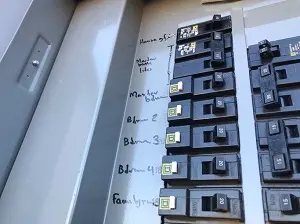© Kameleon007 - iStock/Getty Images
The Importance of Home Inspections When Buying in Minneapolis and the Twin Cities
Buying a home in Minneapolis and the Twin Cities is a big decision—whether it’s a charming bungalow in Longfellow or a modern townhome in Northeast, you want to know exactly what you're getting into. One of the best ways to protect your investment is by conducting thorough home inspections before you finalize your purchase.
Why Inspections Matter
Inspections provide a clearer picture of the home's condition, identifying potential issues that may not be visible during a showing. This gives you leverage for negotiations, confidence in your purchase, or even a reason to walk away if needed.
Recommended Home Inspections in the Twin Cities Area
1. General Home Inspection
This is your baseline inspection. A certified inspector will evaluate the major systems of the home—roof, foundation, HVAC, electrical, plumbing, insulation, windows, and more. It’s your first line of defense in spotting structural or safety concerns.
2. Sewer Line Inspection
Many older Minneapolis and Twin Cities homes have original clay or cast iron sewer lines that can crack, collapse, or be infiltrated by tree roots. A sewer scope inspection involves running a camera down the main line to assess its condition. Repairing or replacing a sewer line can cost thousands—don’t skip this one.
3. Radon Testing
Radon is a naturally occurring, odorless radioactive gas that can seep into homes from the ground. Minnesota, including the entire Twin Cities area, has high levels of radon, and prolonged exposure is a leading cause of lung cancer. A radon test is inexpensive and well worth it. If levels are high, mitigation systems are easy to install and often negotiated with the seller.
Other Optional Inspections
Depending on the type and location of the home, you may also want to consider:
- Mold or moisture inspections (especially in basements)
- Chimney inspection (for wood-burning fireplaces)
- Lead paint testing (for homes built before 1978)
- Asbestos inspection (common in older homes)
What Happens After the Inspection?
Once the inspection reports are back, your agent (that’s us!) will guide you through the findings and help you decide what, if anything, to negotiate with the seller—repairs, price reductions, or credits. In some cases, serious red flags may mean it’s smarter to move on.
Buying Smart in the City
At Urban Minneapolis Homes, we believe in helping our clients make informed decisions. That starts with connecting you to trusted inspectors and making sure you’re protected throughout the buying process. A little extra diligence up front can save you a lot of headaches (and money) down the road.
Posted by Mike Seebinger on


Leave A Comment